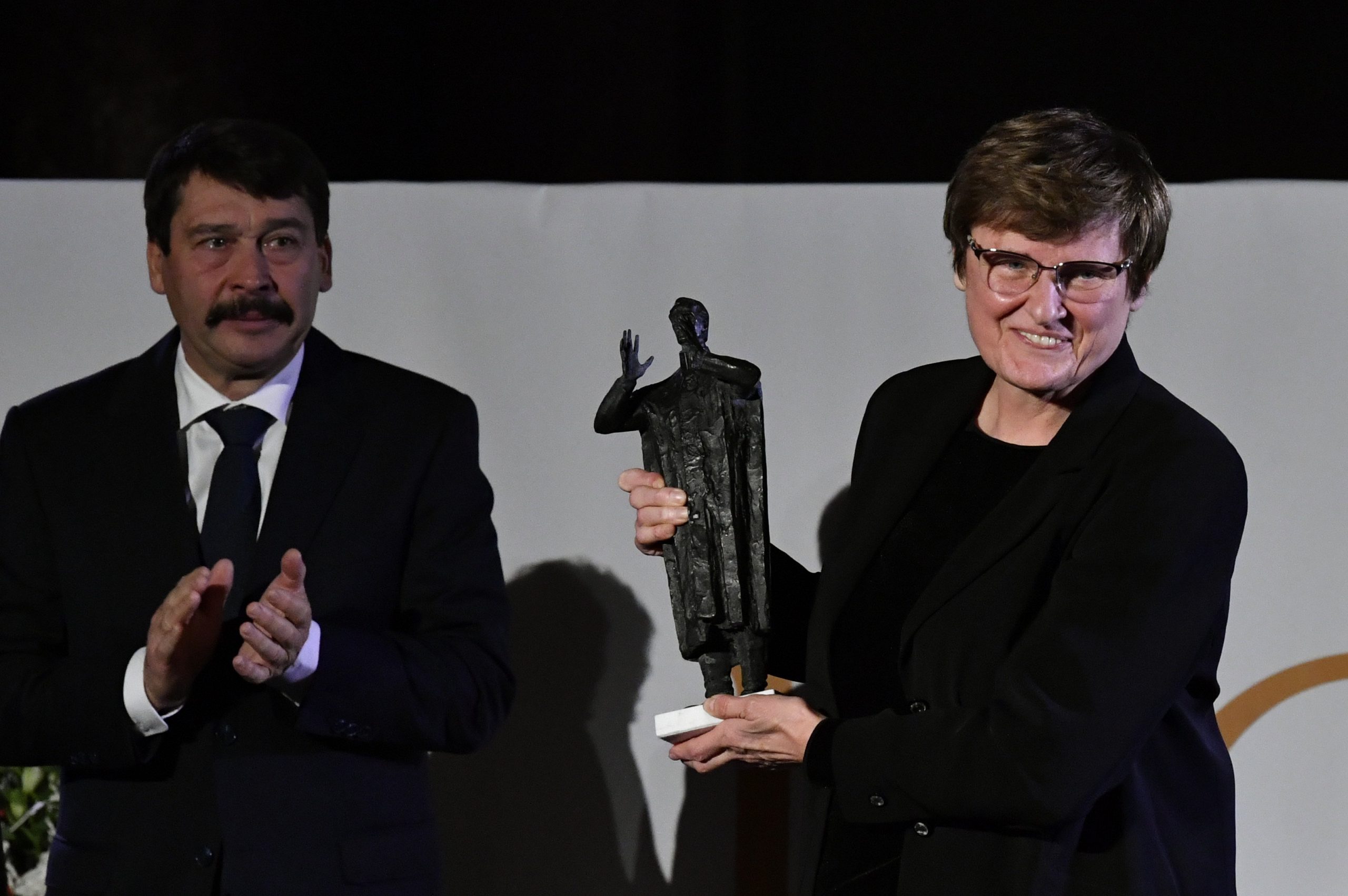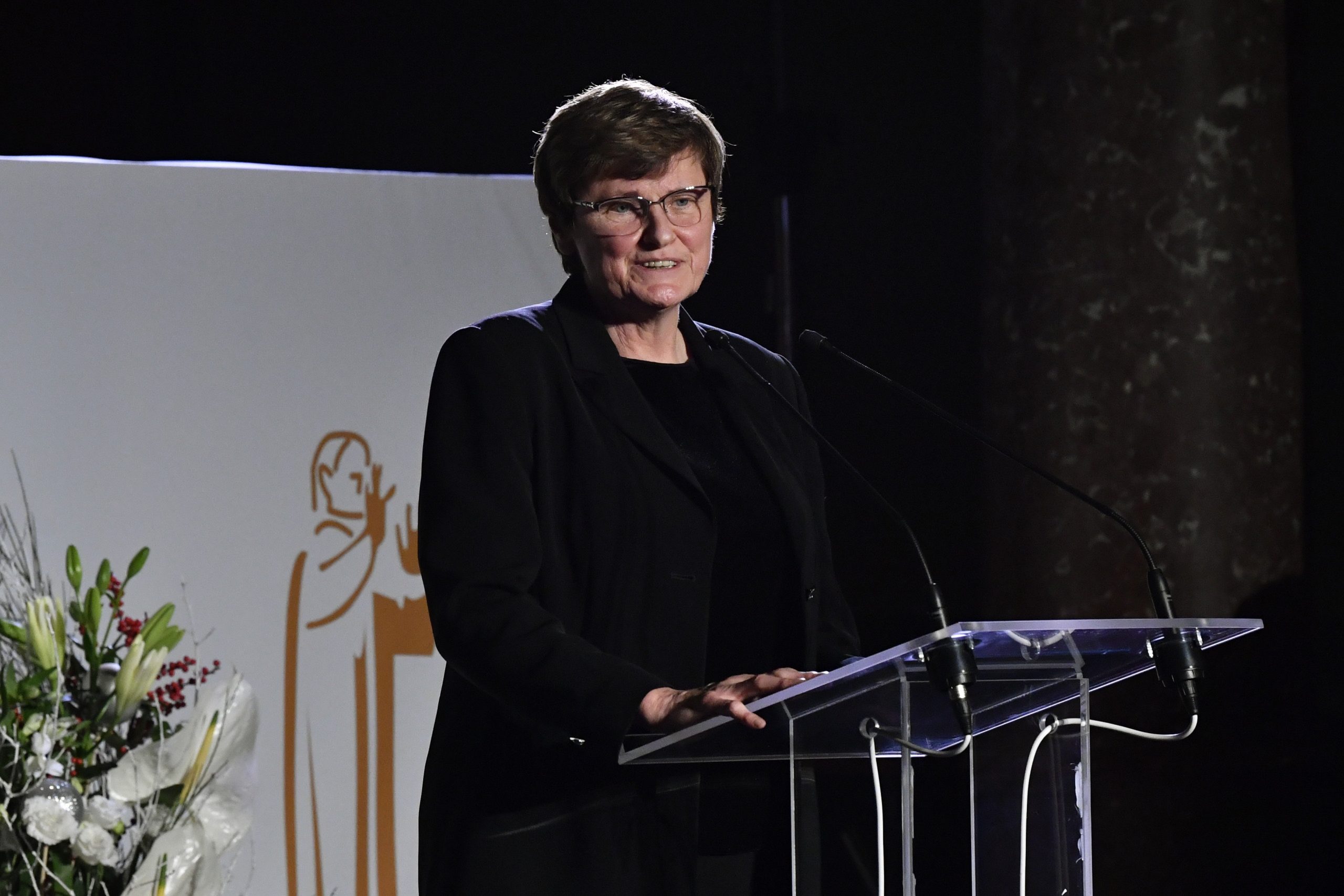
"We Hungarians are proud of our compatriot who started from Hungary to become one of the best in her field," President Áder said.Continue reading

The first step that was taken to help the world in the chaos caused by the coronavirus was by Katalin Karikó. The work of the Hungarian researcher undoubtedly became a key factor in the fight against COVID that influences the lives of the total population of Earth. The professor has seemingly developed a revolutionary vaccine out of the blue, but the truth is that she has been working in this area for a long time and has been tirelessly studying the potential of mRNA technology. Although she was not awarded the Nobel prize this year, she will perhaps someday be included in the long list of Hungarian Nobel prize laureates. And of course, the vast number of awards she received this year show that her work is recognized throughout the world. Many may ask daily: “Who exactly is Katalin Karikó and where does this humble, modest ‘genius’ come from?”
Katalin Karikó was born on January 17, 1955, in the Hungarian city of Szolnok. After graduating from high school, she studied biology at the University of Szeged, where she also received her doctorate. Even during her studies in Szeged, she worked in the field of synthesizing RNA. On the search for new methods, Katalin Karikó, her husband Béla Francia, an engineer, and their daughter emigrated to the USA in 1985. Temple University in Philadelphia invited her to work there, which she did for three years. After that, she lived in Washington for a year.
From 1989 she worked at the faculty of medicine at the University of Pennsylvania. In 1998 she met immunologist Drew Weissman, professor at the University of Pennsylvania, with whom she then studied the development of medication based on mRNA. Together, the two founded a company, which Karikó headed as CEO. A concrete drug development failed, and the patent on the technology obtained by the two was sold by the university. Karikó’s position as a research assistant professor was not renewed by the university, and she was demoted to a temporary postdoctoral position.
Despite the setbacks, Karikó remained faithful to mRNA research. She finally managed to modify the viral RNA molecules in such a manner that they were no longer destroyed by the immune system in human cells. Karikó published the results together with Weissman. Derrick Rossi from Harvard University picked up the technology and further developed it. In 2010 he founded the company Moderna together with some colleagues. In Germany, the founders of BioNTech, Uğur Şahin, and Özlem Türeci, took notice of Karikó and offered her a job. Since 2013 Karikó has been the Senior Vice President at BioNTech. She is also an Adjunct Associate Professor of Neurosurgery at the University of Pennsylvania.
The synthetic mRNA first led to heavy infectious reactions, as the immune system regarded them as an enemy. Karikó said the following regarding this:
Finally, I replaced one of the four building blocks of mRNA, uridine, with a modified version of it, pseudouridine, which is commonly found in the RNA of our cells, and Drew showed that such mRNA is ‘silent,’ i.e., does not activate immune cells. To our surprise, this ‘silent’ mRNA was also better as a vaccine.”
The university patented a method called the Karikó-Weissman technique, which is now the basis for the development of many covid vaccines.
After decades of work, Katalin Karikó stepped into the public eye and received a number of prestigious scientific and governmental awards, except for one: the Nobel Prize. We have already analyzed the subject in detail. Read more about it here:
Karikó said the following about the awards:
“The awards are not important, the really important prize is the discovery itself. The Nobel Prize Committee is a team consisting of Swedes who decide who deserves the prize. Good for them, but let us rather concentrate on what is really important. I only care about and focus on what I can change, what I can influence, and the prize committees are not one of those things.”
Although she has not been awarded the Nobel Prize, she has received numerous other prestigious awards, including the Rosenstiel Award, the Horwitz Prize, the Reichstein Medal, the Princess of Asturias Prize, the U.S. Great Immigrants Prize, the Breakthrough Prize, the Keio Medicine Prize, the Paul Ehrlich and Ludwig Darmstaedter Prizes, the Grande Medal, the Dr. Paul Janssen Award for Biomedical Research, and the Pearl Meister Greengard Prize.
She received some of the awards jointly with fellow researcher Drew Weissman. Karikó was also recently named to TIME Magazine’s list of the 100 most influential people. She has also received numerous awards in Hungary, being named “Person of the Year” by the public media, given honorary citizenship of Szeged (where she studied), an honorary doctorate from the University of Szeged, the Human Dignity Award, and the Ignác Semmelweis Prize. Her research work is also appreciated in everyday life: murals of her were recently made in Budapest and Spain.
List of prizes and awards Karikó received until December 10, 2021:
1975 – 2020
2021
2022 in advance:
Featured image: Katalin Karikó, this year’s recipient of the Bolyai Prize. Photo by Zoltán Máthé/MTI